Marcel Kittel: Now I'm free
Retired German sprinter enjoying life without 'pressure and expectation'
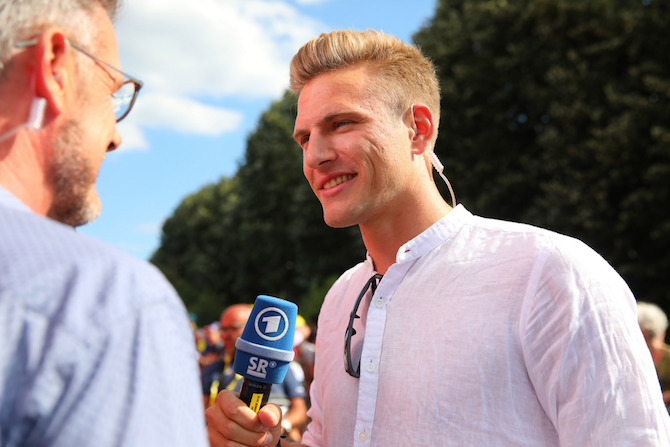
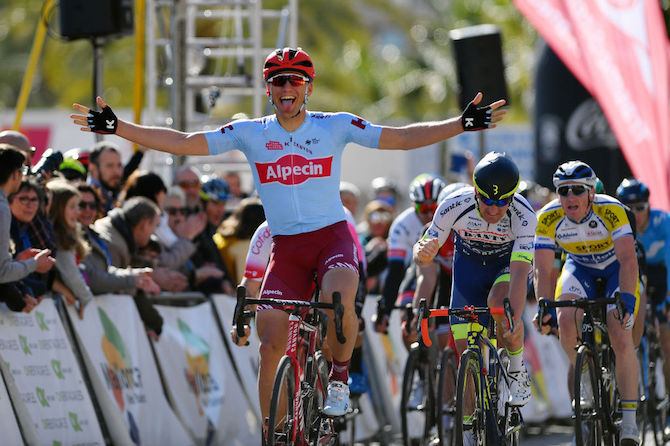
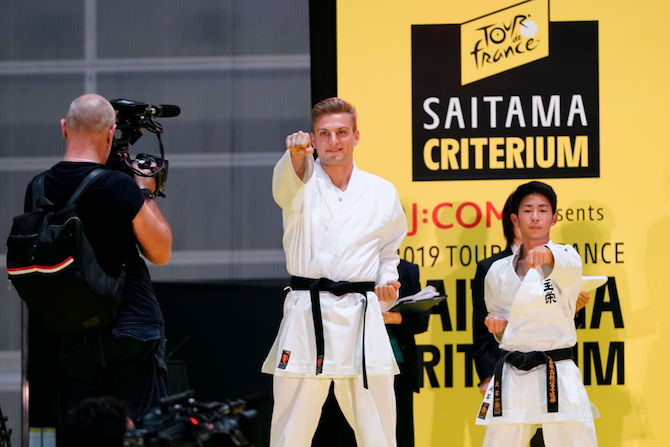
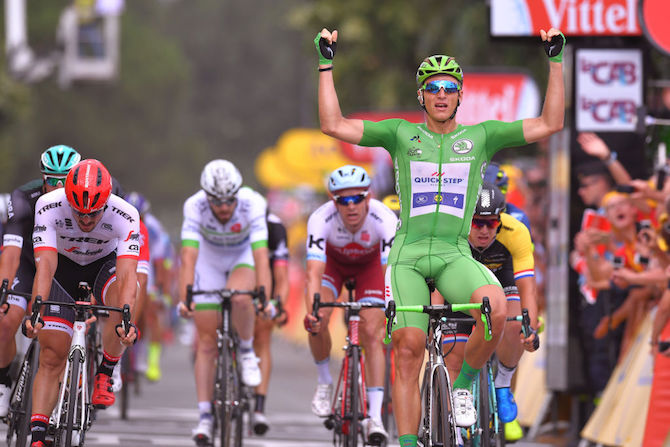
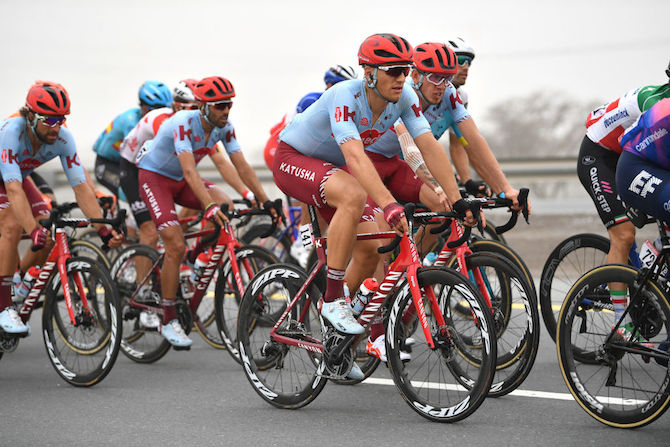
At the weekend, Marcel Kittel made a brief return to the life he has left behind. During his time as an ambassador at the Saitama Criterium in Japan, he spoke at length with the cycling media for the first time since his retirement, and one comment was particularly resonant: "Now I'm free."
Professional cycling, it seems, had become a prison for the German. Kittel refers to it as a "very small bubble", and was one in which he felt constrained, both by the pressure and the rigid routine that were thrust upon him.
Two months after officially breaking out into the wider world, he has not a hint of regret – only a fresh perspective that makes pro cycling seem all the narrower.
"I've really enjoyed being here in Japan, and it's really nice to still have a connection with the sport in some way, but, at the same time, I don't miss it," Kittel told Cyclingnews and Belgian newspapers Het Nieuwsblad and Le Soir.
"I really like everything else that's going on now, which is very different and has many more aspects to it than only being focused on training and racing and 'where do I go next?' All successful athletes, or athletes in general who have a long career, only know this one life, but what we experience is not reality."
Among those aspects of the 'real world' is a return to education, and there's no time to sleep off the jet-lag as Kittel is due in a lecture hall at the University of Konstanz on Tuesday as he pursues an economics degree. Just a few weeks down the line, his hands will be even fuller, as he and his wife prepare for the birth of their first child.
As such, the career that produced 89 victories – 14 of them at the Tour de France – seems a world away.
Get The Leadout Newsletter
The latest race content, interviews, features, reviews and expert buying guides, direct to your inbox!
"I really like the fact that all the expectation is gone," Kittel says. "You're not the centre of attention anymore, whereas, as a sprinter, you always are. That's a definite change. I'm really proud of what I achieved in my career, and I still love the sport, but it's very nice not to have that pressure and expectation.
"A huge differences is that I was in a very strict organisation and plan as a professional, and now I'm free. For me, personally – and it's a very individual thing – I love to make my own decisions and choose things I like instead of being in this very strict environment."
'Cycling is beautiful but pro cycling is a totally different story'
Kittel's time in pro cycling certainly came with its ups and downs. He started his professional career with the Skil-Shimano squad now known as Team Sunweb and, after a previous focus on time trialling, quickly developed into one of the best sprinters in the world.
After winning four stages at the 2013 and 2014 Tours, however, Kittel endured a terrible 2015 season, in which he managed just one victory.
He severed his contract at Sunweb and was picked up by QuickStep, where he came roaring back with six wins at the Tour and two at the Giro d'Italia during his two-year stay with Patrick Lefevere's team. A big-money move to Katusha-Alpecin followed, but it was a disaster.

Kittel, who still doesn't like to speak publicly about his time on the team, terminated his contract seven months early and headed for retirement at the age of 31.
"For me, it's really important to underline that cycling is a very beautiful sport. If you ride your bike, you experience nature. If you ride alone, you can really focus on yourself and get rid of your everyday problems. But when you live it as a professional, it's a totally different story," he says.
"It's the hardest sport in the world. You're racing for six or seven hours sometimes, even for three weeks at a time, plus all the training. You're constantly tired, and it takes a huge toll, not only on your body but also on your mind."
Kittel argues that some people are naturally more suited to that way of life than others and, for all his talent, he simply wasn't. It's at this point that Lefevere's recent description of him as "mentally fragile" seem particularly ill-advised.
"I think there are different mentalities in the sport. A lot of the very successful guys are very calm, very focused on their work," he continues. "If you're maybe just a different character, you'll have a harder time dealing with everything that belongs to professional cycling. There are guys who have that ethos, who can put everything aside, and don't care about being in that bubble. I think I was one of those guys who enjoys other things, so then sometimes it can be difficult.
"You have to find a balance. For me, that was always the challenge – how can I make it work in terms of being a successful professional but also having this balance as a normal person? It's tough. You need to be aware of it when you come into the sport, and that's why it's very important to support young riders if they feel it's challenging, or they start to pay a price for all the hard work they're putting in," says Kittel.
What now?
In the short term, Kittel's time will be divided between changing nappies and avoiding fresher's flu. As for the long-term, with his degree set to take three years, he has no fixed plan when it comes to launching a second career.
"Maybe I should explain that I didn't really have a plan when I turned pro," he says. "I know that I'm interested in economics, and would like to know more about it, and I want to find out if it's something for me. That's the philosophy I have when I decide something.
"Obviously, I've thought about what I could do, and I decided to do it because I think it will be helpful for me, but the most important thing is whether I'm interested in it and curious about it, so we'll see what I can do with it in the future. I think nobody knows exactly what will happen before they decide something – at least that's how it's always been for me."

As for cycling, Kittel has ridden his bike sparingly over the past months, not that he seems to be carrying any of the typical retirement weight. He's been putting in some hours in the gym, doing 'cross-fit', but will soon be back on the bike as he plans to take part in a number of Gran Fondos ahead of a possible appearance at the World Championships next year.
He doesn't want to cut all ties with professional cycling, but will let doors open for him rather than seeking out any opportunities.
"My only focus now is on my studies and our little boy," he says. "It's nice to still have some connection with the sport, and I will try to stay involved a bit, but I clearly know what my priorities are now."
Looking even further into the distance, Kittel says he won't encourage his son to take up cycling, but won't "hide the sport and my career" from him, either. Whatever he ends up doing, there'll be unconditional support, says Kittel, who's ready to pass on the biggest lesson he learned from his time as a professional cyclist: "As long as he's happy, then that's the most important thing."
Patrick is a freelance sports writer and editor. He’s an NCTJ-accredited journalist with a bachelor’s degree in modern languages (French and Spanish). Patrick worked full-time at Cyclingnews for eight years between 2015 and 2023, latterly as Deputy Editor.
